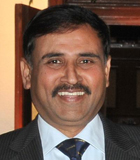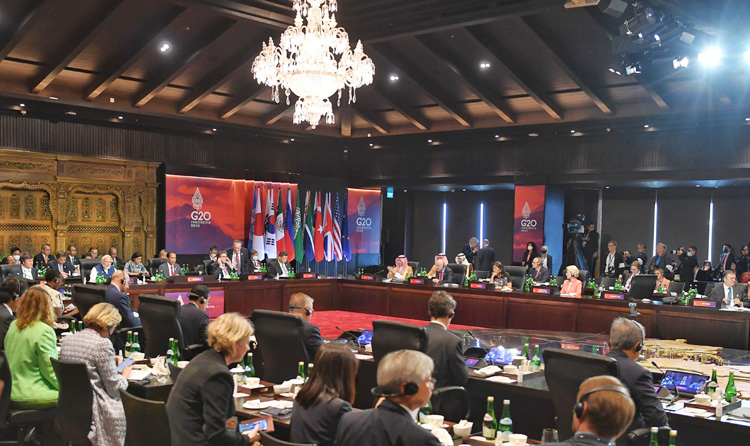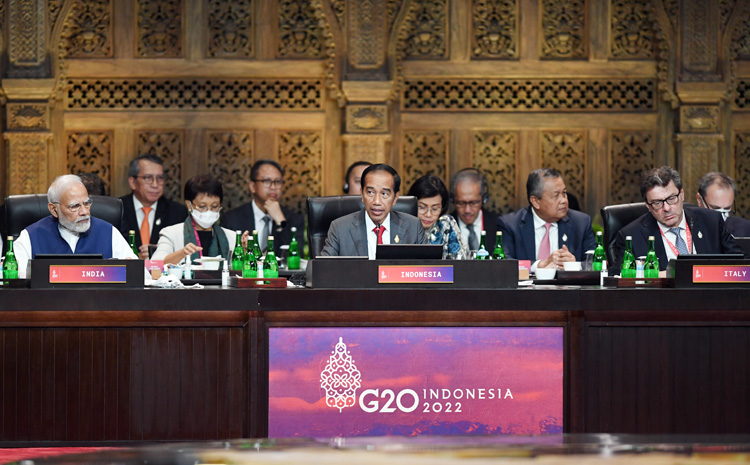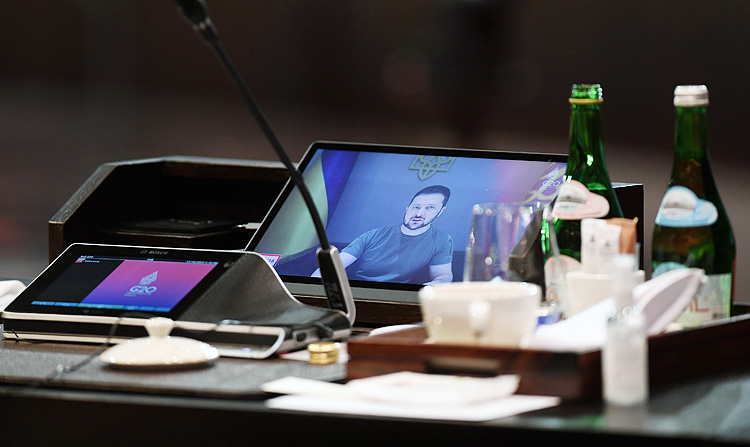INDIAN ARMED FORCES CHIEFS ON OUR RELENTLESS AND FOCUSED PUBLISHING EFFORTS

The insightful articles, inspiring narrations and analytical perspectives presented by the Editorial Team, establish an alluring connect with the reader. My compliments and best wishes to SP Guide Publications.

"Over the past 60 years, the growth of SP Guide Publications has mirrored the rising stature of Indian Navy. Its well-researched and informative magazines on Defence and Aerospace sector have served to shape an educated opinion of our military personnel, policy makers and the public alike. I wish SP's Publication team continued success, fair winds and following seas in all future endeavour!"

Since, its inception in 1964, SP Guide Publications has consistently demonstrated commitment to high-quality journalism in the aerospace and defence sectors, earning a well-deserved reputation as Asia's largest media house in this domain. I wish SP Guide Publications continued success in its pursuit of excellence.
- Prime Minister Modi Visits Punjab’s Adampur Air Base, Interacts with Airmen after Successful ‘Operation Sindoor’; Stern Message to Pakistan
- The layered Air Defence systems that worked superbly, the key element of Operation Sindoor
- Operation Sindoor | Day 2 DGMOs Briefing
- Operation Sindoor: Resolute yet Restrained
- India's Operation Sindoor Sends a Clear Message to Terror and the World – ‘ZERO TOLERANCE’
- Japan and India set forth a defence cooperation consultancy framework, talks on tank and jet engines
Ukraine conflict and Paralysed Global politics
The G-20 summit offered a snapshot of a somewhat paralysed international system, ill-equipped to mobilise around solving major shared challenges
 |
The Author is Former Chief of Staff (COS), Central Command, Indian Army. He is an expert on Siachen and Ladakh with experience in counter insurgency operations in J&K and North East and is also an expert on Information Warfare. |

Toward the end of last year, when Indonesia assumed the rotating Presidency of the Group of 20 major economies, officials in Jakarta sensed an opportunity to show leadership on the world stage. For years, analysts have seen Indonesia as a country of immense scale and potential — the world's largest Muslim-majority nation, one of the world's largest democracies and a budding economic powerhouse in Asia — that still punches below its weight.
Here was a chance to put an Indonesian stamp on the vexing global challenges of the day, from climate change to food security and debt relief in the wake of the pandemic. The 20-nation bloc account for about 60 percent of the world's population and 80 percent of its gross domestic product. If the U.N. Security Council upholds the outdated political architecture that emerged out of the ashes of World War II, and the Group of Seven nations represent the old boys' club of the West (plus Japan), the G-20 is arguably a more accurate reflection of the world as it is. And Indonesia, as this year's host, was poised to lead the way.
The months ahead of the leaders' summit in Bali were shrouded in intrigue over the guest list, as Western officials indicated they didn't want to deal directly with Russian President Vladimir Putin
Then the war in Ukraine happened and Indonesia's moment in the limelight was cast into a shadow. The months ahead of the leaders' summit in Bali were shrouded in intrigue over the guest list, as Western officials indicated they didn't want to deal directly with Russian President Vladimir Putin, the invading antagonist. Putin eventually opted against travel, but real divisions endured and the far-reaching consequences of the war loomed over proceedings.
At the summit's conclusion on November 16, 2022, a joint communique hinted at wider rifts. While countries like China and India have publicly called for an end to the war, they have not taken any public positions explicitly critical of the Kremlin, much to the chagrin of the Western block.

"Most members strongly condemned the war in Ukraine and stressed it is causing immense human suffering and exacerbating existing fragilities in the global economy," the communique said. But it then offered a moderate statement, "There were other views and different assessments of the situation and sanctions. Recognising that the G20 is not the forum to resolve security issues, we acknowledge that security issues can have significant consequences for the global economy".
Indonesian President Joko Widodo acknowledged the current difficulty at the onset of G-20 deliberations. "I understand we need huge efforts to be able to sit together in this room," he said before the closed-door discussions began. "Being responsible means creating not zero-sum situations, being responsible here also means that we must end the war. If the war does not end, it will be difficult for the world to move forward."
At the summit's conclusion on November 16, 2022, a joint communique hinted at wider rifts. While countries like China and India have publicly called for an end to the war, they have not taken any public positions.
Yet perhaps the abiding image of the summit came in the early hours of Wednesday, November 16, when the G-20's leaders were confronted with the smoky fallout of a missile landing in Poland that claimed the lives of two people. In Bali, G-7 and NATO leaders present broke away for their own meeting and discussions. Though both NATO and Polish officials eventually said they believed the blast was the result of an accident — and possibly caused by an errant Ukrainian air-defence missile — the fault in their view still rested with Russia.
The West's political clarity on the threat posed by Russia and desire to further deepen its economic and political isolation sat uncomfortably with the Indonesian leader's desire not to be sucked into a Manichaean conflict between the West and its autocratic adversaries. That's both in the context of the West's confrontation with Russia over Ukraine, as well as hardening attitudes in Washington toward China.

"Widodo's frustration with politics around the summit stems from Indonesia's dogged efforts to shield Southeast Asia from great power rivalries," wrote Sana Jaffrey, Director of the Jakarta-based Institute for Policy Analysis of Conflict. "The strategy of managing its strategic interests through consensus-based regional institutions is quickly becoming outdated in the face of intensifying U.S.-China competition."
As a result, the G-20 offered a snapshot of a somewhat paralysed international system, ill-equipped to mobilise around solving major shared challenges as more short-term tensions fester. Going into the meeting, top leaders were aware of the limitations of a forum like G-20.
You can't solve a problem of geopolitics with economic policy measures. It will be very difficult to bring the level of economic cooperation to the level it should be.
You can't solve a problem of geopolitics with economic policy measures. It will be very difficult to bring the level of economic cooperation to the level it should be. Ending the war in Ukraine is the single most powerful factor to turn around the world economy.
Similar forces are also on show in ongoing international talks over climate action, where the war in Ukraine, sanctions on Russia and their downstream effects on global energy markets have arguably distracted national governments from stepping up their commitments to decarbonise their economies and transition away from fossil fuels.
"Evidence is also needed that the most powerful countries on this planet can set aside their short-term interests long enough to act in a concerted fashion and decisively when faced with planet-threatening problems like climate change," wrote Raja Menon, fellow at the Carnegie Endowment for International Peace. "The war in Ukraine offers no such evidence."





